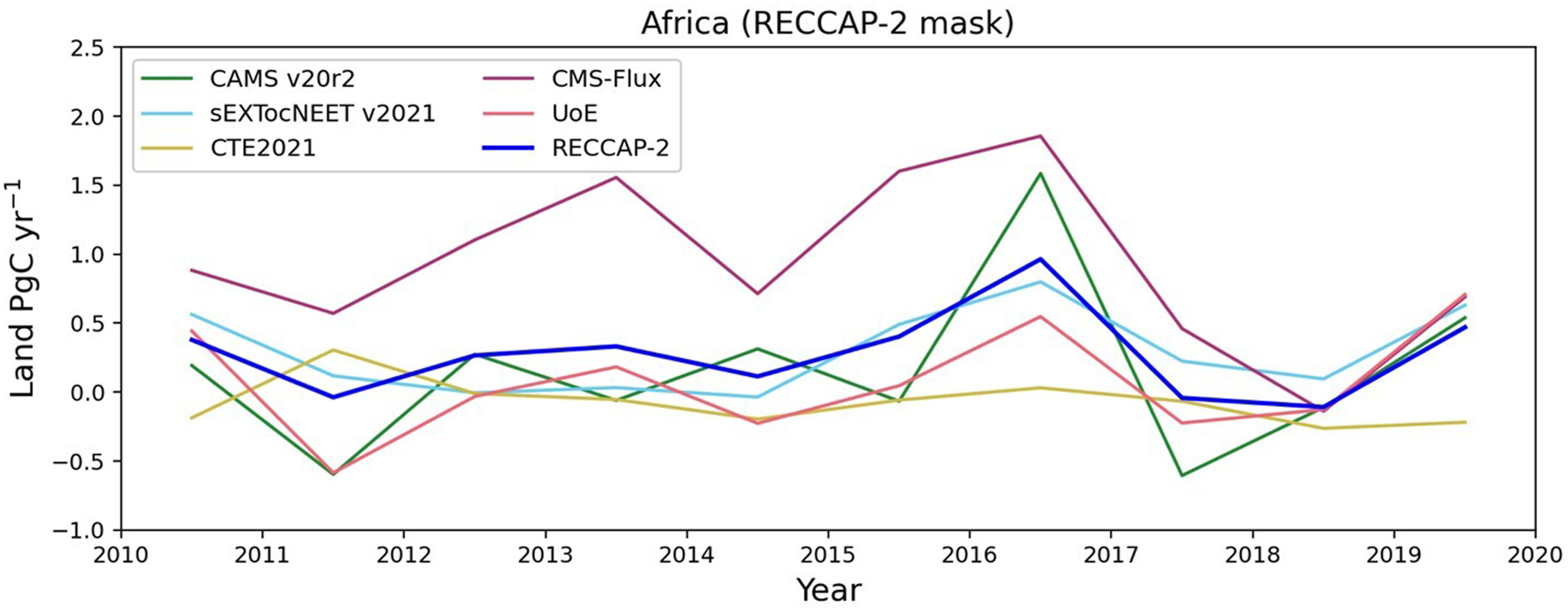In February 2024, a research article on the African Regional Greenhouse Gases Budget (2010–2019) by Yolandi Ernst and colleagues was published in Global Biochemical Cycles. As part of the Regional Carbon Cycle Assessment and Processes Phase 2 (RECCAP2) initiative of the Global Carbon Project, the paper addresses the policy-relevant objectives of RECCAP2 through a comprehensive overview of improved estimates of CO2, CH4, and N2O fluxes and variability.
The authors show that Africa’s sink capacity is decreasing and that the continent most likely switched from a small net sink to a small net source during the 2010–2019 period. The authors also stressed the importance of more observations to improve the large uncertainties in their estimates.
Currently, Africa is home to approximately 1.4 billion people, with projections indicating a population surge to over 2 billion by 2040. This dramatic increase necessitates extensive land conversion for agricultural production to feed the growing populace and drive economic growth. Concurrently, heavy utilisation of land for grazing, fuelwood, and other natural resources further strains the continent’s ecosystems. There is significant global interest in leveraging African landscapes to store carbon and offset global carbon emissions. However, these efforts are complicated by the competing demands for land and resources.
Understanding Africa’s shifting role in the global carbon cycle requires robust data on carbon-cycle processes and greenhouse gas emissions to accurately quantify the net impact of these competing trends. The full article can be read here.
Some additional perspectives of the KADI Project on carbon markets
A reduction of anthropogenic emissions or a measure to create a carbon sink can be traded. However, it is important to respect some principles. Namely, there must be efforts to create an additional sink that would not be there otherwise. In addition, the sink must be sustained after the measure has ended with monitoring and verification by independent observations.
KADI builds the foundation for an integrated climate observation network. Independent observations cannot be paid for by single projects but require separate funding (e.g. generated as a fee from each certificate). Independent observations (including models) are needed in the certification system.
Finally, we believe verification of the success of a measure will help avoid fraud and support the development of integrated climate services that underpin solutions with co-benefits and respective policies and initiatives.


